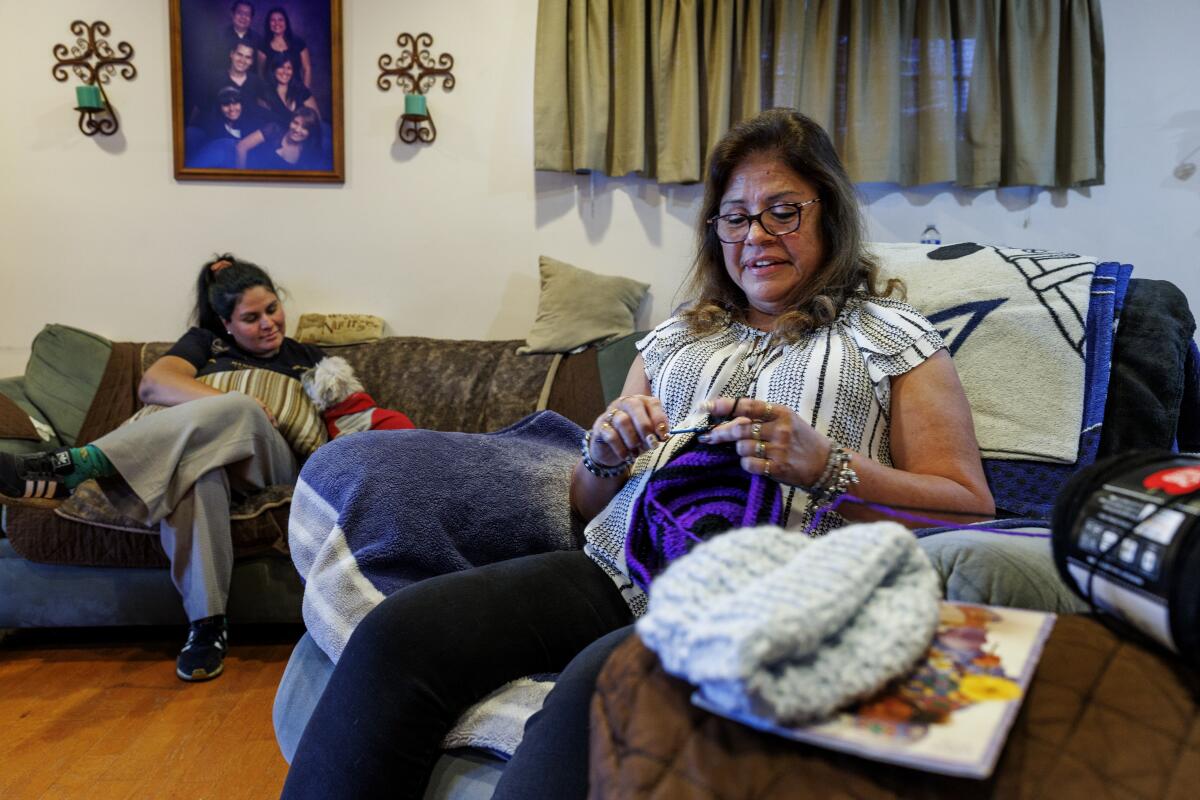Humbe talks new album ‘Dueño del Cielo’ and Iceland
According to Humbe, it doesn’t matter how bad his day is going — a pink sunset can change everything.
As a kid growing up in the Mexican metropolis of Monterrey, the singer-songwriter would seek out the sky’s strangest shapes and study the way light broke through the cloud formations — it would comfort his anxieties and provide creative inspiration. So, when he set out to finish his most recent LP, “Dueño del Cielo,” released on Saturday, he found himself in one of the few places where the sun never truly sets: Iceland in the summertime.
“I envision this album as this planet of ashes. So, I wanted to go into that state, be lonely and create the inner dialogue heard on the album,” said the singer of his sixth album.
Humbe has been playing music from a young age, but he first rose to fame during the pandemic, sharing snippets of his music-making process online. Following the release of his breakout debut album in 2021, “Entropía,” the alternative pop singer earned a Latin Grammy for new artist and has since become well-known for his 2023 single “Fantasmas.” The track honors his late grandpa for Día de los Muertos and tends to go viral each year around the holiday.
“Dueño del Cielo” is the final installment of a trilogy, following 2023’s “Esencia” and 2024’s “Armagedón.” Nearly every track on the latest release signals transformation, in both its lyricism and its sonics. On the opening song, “Luz de Luna,” he gushes about not wanting to miss someone over a heartfelt piano ballad that slips between punky guitar rifts and unpredictable 808 drums. While on tracks like “Harry Stamper” and “Sábanas,” he embraces whimsical synthesizers and staccato vocal patterns to create a mystical soundscape.
On a recent promo trip to Los Angeles, De Los caught up with the 25-year-old Latin alternative pop singer in the days before the release of “Dueño del Cielo.” Humbe will be embarking on his first-ever U.S. tour next year, and will play at the Wiltern on April 9.
This interview has been condensed and edited for clarity.
“Dueño del Cielo” is out in a few days. How are you feeling about its release?
It’s surreal. I’ve been working on it for five years, so I can’t believe it. I started writing it at the beginning of the pandemic. The first song was the title track, and it was a song that embodied so much in me. It’s a rebirth and a moment of growth. “Dueño del Cielo” generally represents resurrection. I’ve always been so attached to my current version. I always think, if I like who I am right now, I will want to stick to it and never change. That’s when frustration comes.
This album taught me that change is part of life in the best way possible.
This album is also the final installment in a series, following “Esencia” and “Armagedón.” When did you realize you had a trilogy on your hands?
It feels like the universe spoke it [into existence] in a way. Sometimes things can’t only be coincidences. I realized all three albums were meant to be a trilogy, because they are all albums that essentially celebrate life.
“Esencia” is an album that celebrates the essence of one’s self. “Armagedón” represents how someone or something like a relationship or an addiction can change your whole essence. At first, it can seem just like a shooting star, but then you realize it’s a f— asteroid that’s gonna kill you. Then “Dueño del Cielo” is me finding and regaining that essence. It’s about realizing that from the ashes you can still be born.
What was going on in your life when figuring out how to end this series?
I’ve been searching for inner happiness. I can’t even think about a specific situation, because it’s honestly just a whole bunch of things that just make one’s glass full. I was just sick of everything. I was falling in a depression state without seeking out motivation.
But I realized that everything was due to me trying to find something that maybe wasn’t lost. I realized that life is about reinvention. It’s about deconstruction and reconstruction. That’s what I’ve been doing, and I will keep doing.
A portion of this upcoming album was made in a remote Icelandic town. When did Iceland come into the picture?
My brother, his girlfriend and I were in a sushi bar in Mexico City. We came to the realization that we are young and that we have free will. We figured I’ve been working on this album for five years, and haven’t finished it because we’ve been so distracted with everything else. So, why not take advantage of the fact that we are young, that none of us have kids, that we can travel and that it’s about to be summer in Iceland?
We bought the tickets at the sushi bar and left. It was crazy. We went for a month and a half. It was summer, so there was no darkness — only pure daylight. The darkest it got was blue hours. Living there was so poetic and beautiful.
I envision this album as this planet of ashes. So, I wanted to go into that state, be lonely and create the inner dialogue heard on the album. The album’s perspective changed so much there. It became so versatile.
How do you feel you changed as a musician in Iceland?
I got so much more sensitive towards everything. I gained so much perspective on how live instruments change a song. I used to work a lot with plug-ins and sound libraries. But this time, everything was recorded live.
After Iceland, we recorded everything in Miami. We were able to do the album in 10 days. Then, for the next three months, I kept finding small details to fix, even though I knew I was done. I had such a hard time letting it go that my mom had to tell me to stop.
At what point in the process did your mom have to step in?
I uploaded the album on my way to the sound check. Even on the day of my listening party in Mexico, I was still making changes to the album. That’s when my mom and the mixing engineer told me that it was time to let it go.
She didn’t say it before, so I guess it wasn’t done up until that very moment.
There are 22 tracks on this album, making it your longest project to date. Did you always know this was going to be a lengthy record?
I always wanted to do a long project. I’ve had it on my mind since I was a kid. I wanted to do something like Aerosmith or Queen when they would release those long a— projects that belonged to a concept, back when artists used to create concepts and create universes. That’s what I admired about artists, their ability to invite me somewhere in their fictional world.
What kind of world do you think you’re inviting people into?
I’m inviting them to the sky. Since I was a kid, that’s been a constant in my life. I’ve always been hypnotized by the sky, by the light and how light works with the clouds. Now I am actually in awe every time I see a pink sky or see a nice pair of clouds. It sounds stupid, but you really could have a s— day and end it with a beautiful sunset. It could all change the way you feel.
Were there any sunsets you witnessed while making the album that influenced its sonic direction?
There was this time in Iceland, when I was writing “Murallas.” It was so weird, because the weather was so foggy and it felt like we were in a cloud all day, but mid-session, it cleared up out of nowhere. It eventually became a beautiful sunset that lasted four hours. “Murallas” is such a sad song, and I couldn’t keep writing about something so sad when it was so beautiful outside. So, we stopped working on it and went outside to enjoy.
You started this three-album journey years ago. Now, after finishing its last installment, how do you think making this music has changed you?
I’m a more excited person about everything. I’ve refound a child in me that I thought I’d lost in a way. I really thought he was gone, and I found him again. I feel much more at peace today. It’s so clear to me now that everything changes all the time. That is something this album taught me: I’m ready for anything.



